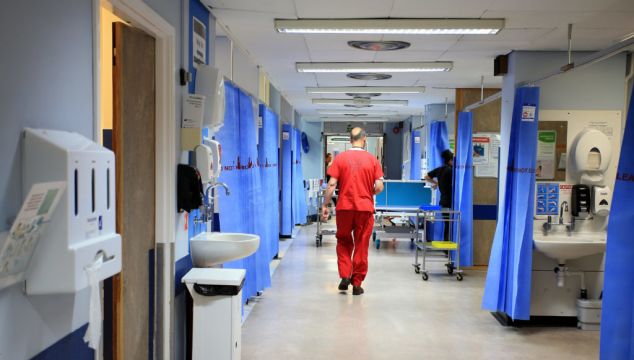Sacrifices made by the public during the pandemic to reduce the pressures on acute hospitals will be for nothing if Ireland continues to have multiple occupancy rooms in hospitals, according to the Royal College of Surgeons.
The RCSI said all newly-built hospitals should be designed with single-occupancy rooms rather than hospital wards, which are often over-crowded and poorly ventilated, with up to six patients sharing shower and toilet facilities.
Emeritus Professor of Clinical Microbiology at RCSI, Hilary Humphreys, told Newstalk Breakfast that multi-occupancy rooms must be minimised to prevent the spread of infection in hospitals.
"That contributes to infection spreading. Single rooms would also provide dignity and privacy to patients when they are acutely ill."
Prof Humphreys said the Irish public responded "magnificently" during the pandemic to calls for social distancing in the workplace and schools. However, hospitals struggled to introduce such measures because they had "too many patients, too close together and too few in single rooms."
Prof Humphreys said investment in single rooms would also represent good value.
"If you prevent infection, you prevent avoidable costs. So for example HIQA did a study in 2019, from just super bugs alone excess bed days cost €12 million.
"If you extrapolate that to noravirus, influenza, the recent Covid pandemic and even ordinary microbes, there is a huge amount of money we can save in addition to societal money.
"Because when people are in hospital longer, then they... are not working. They are not paying taxes, they are on disability, sickness pay and so on. I think this is an investment that would represent very good value for money."
Infection control
Prof Humphreys stressed that he was not underestimating the capital costs of such a change in hospitals. However, he maintained that if Ireland runs its health system more efficiently and has patients in hospital for shorter periods of time, then it can adapt to some of those reductions in capacity.
"We have to basically prioritise new buildings where we are building new hospitals and refurbishing new units. I think that is the first area we should look at. And then I think we should look at our existing facilities.
"I don't think this can be done overnight. But I think it should be a commitment and strategy taken by our health service nationally. I think it would be good for patients and good for the public."
Prof Humphreys said the country has underestimated the importance of infection control up to now.
"There has always been concerns in emergency departments where you have a lot of patients too close together that you may have transmission of things like noravirus and influenza, but even tuberculosis and the possibilities of a patient who comes in with something and is exposed to a patient who has a transmissible form of tuberculosis.
"That concern has always been there and we have been really fortunate that we haven't had outbreaks. But you are at the edge of those risks and it is a concern for people in hospitals."







